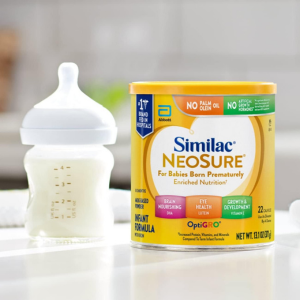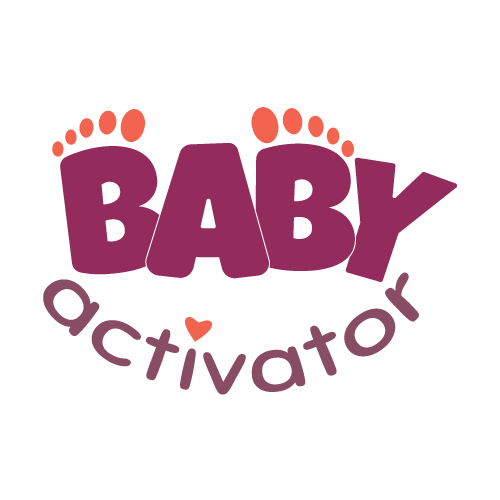Your child has arrived and is eager to explore their vast new environment. Every day is full of exciting developments! Baby formula can help your baby's development during their first year. Feed their stomachs vitamins, minerals, and other nutrients to promote growth. Baby food supports brain development and nourishes their bodies. And help them reach all of those incredible milestones ahead.
There are numerous formula brands on the market. And there are various types and even forms to choose from. However, no one is the best or right formula for your child. If you want to buy a baby formula for your lovely baby, you can see their review and follow the child doctor's recommendations.
How We Chose The Best Formulas
We reviewed and chose baby formulas based on the following criteria from leading experts. We interviewed four pediatricians and parents on the What to Expect publishing staff. And What to Expect from community members. We also evaluated each formula using the following criteria:
1. Type: Although baby formula follows breast milk. Provide the same essential nutrients and vitamins to the baby. Not all formulas are the same. However, the foundations are usually similar. There are a few different types of baby formula to choose from. According to the American Academy of Pediatrics (AAP), milk-based baby formulas are the most widely used. Most of the formulas on this list are milk-based. However, we also included a few organic options, such as partially hydrolyzed baby formula (which may benefit babies with gas or colic). And extensively hydrolyzed formula (which may be better for babies with a milk protein allergy).
2. Ingredients: Although most infant formulas are identical, experts say some varieties have additional ingredients. It may benefit a baby or address different issues, such as prebiotics or probiotics to support immune health. We've included a few such options and a description of the conditions they may help. Most baby formulas are made with non-genetically modified ingredients, which we verified for each product on this list.
3. Availability: Given how stressful it has been during the ongoing formula shortage. Go online to buy baby formula. And see the dreaded "Out of Stock" alert? We've prioritized formula brands with a history of being readily available. And all are sold at many major retailers.
4. Positive feedback: Every child is unique. Try a few different formulas before settling on one that works for your baby. We ensured that every formula on this list has received primarily positive feedback from real parents. We spoke with four pediatricians and some parents on the is Normal editorial team. I combed through the Expect community to find formulas parents say their children liked.
How to Prepare Baby Formula

1. Whatever you choose, follow the manufacturer's instructions for mixing the formula. Too much water in the formula can reduce its nutritional value. And cause electrolyte imbalances, which can lead to seizures. Meanwhile, too little water can interfere with a baby's digestion.
2. Use the measuring scoop that comes with your formula every time. The AAP recommends allowing 5 minutes for boiled water to cool before combining with the formula and then allowing the bottle of formula to cool to room temperature before serving.
3. Before grabbing bottles and preparing formula, wash your hands with soap and water. While at it, make sure your bottles are clean and your nipples are in good condition.
4. Check your formula container's expiration date: Examine the container for seal breaks, rust marks, leaks, and other indications that the formula is contaminated.
5. Use water from a reputable source: You could also consider boiling water for a minute and cooling it before filling the mixing bottles. If you are concerned about the safety of your tap water, consider purchasing bottled water.
6. Before adding the powder or liquid concentrate, measure out the water: Following the water-usage instructions on the box is critical. Diluting formula with too much or too little water can cause serious digestive issues.
7. Warm bottles in a pot of warm water on the stove or with a bottle warmer: Bring to body temperature. Never use a microwave to heat the formula.
8. Use the prepared formula within 2 hours or refrigerate it for 24 hours: Any formula your baby does not finish after a feeding should be discarded.
9. Feed your baby in an upright position. And burp frequently to help relieve colic symptoms: You might also consider curved bottles or those with collapsible bags to reduce air intake.
What Are The 3 Kinds Of Baby Formula?
There are three main types of infant formulas:
- Formulas containing cow's milk protein
- Formulas based on soy protein
- Protein hydrolysate (degraded) formulas
These formulas can be prepared in three ways:
- Before feeding, powdered formula must be mixed with water.
- Before feeding, liquid concentrate formula must be mixed with water.
- The ready-to-use formula comes pre-mixed in the proper ratio.
The Best Baby Formula in the USA
1. Best Baby Formula Overall: Bobbie Organic Infant Formula

This formula was chosen as our top pick. Because it contains high-quality ingredients, meets the nutritional needs of baby development, is reasonably priced, and has an excellent customer satisfaction rate.
Organic formulas must meet specific criteria, such as being free of prohibited synthetic fertilizers and pesticides. Organic formulas also do not contain artificial flavors and colors, growth hormones, preservatives, or other additives. This may set this formula apart in terms of health and safety.
Pros
- Although organic dairy exposes your baby to fewer harmful chemicals, it still contains fatty acids and prebiotics to support their immune system.
- Just like standard formulas.
- Organic formula that is relatively inexpensive and has a better taste than many other formulas
- Meets USDA and E.U. organic requirements.
- There is a partially hydrolyzed version available for sensitive stomachs, as well as a subscription service.
Cons
- It may not be suitable for babies with a true cow's milk protein allergy
- It is not as widely available in physical stores as other formulas.
2. Best Baby Formula for Breastfed Babies: Enfamil Enspire

Because of the inclusion of proteins found in colostrum. Lactoferrin, Enfamil's Enspire, is the brand's closest formula to breast milk. (According to the brand, Enspire is the first and only baby formula in the United States to include lactoferrin.) It's a great choice when combined with nutrients like DHA and choline. And all the other essential minerals and vitamins your baby requires to grow.
Pros
- Includes lactoferrin to more closely resemble breast milk
- Reusable tub
Cons
- Only available as a powder
- More expensive
3. Best Baby Formula for Preemies: Similac Neosure Infant Formula

Human milk is a good option for premature babies. But it is only sometimes available. Premature babies may require additional nutritional support.
This product contains extra calories and nutrients like calcium, magnesium, and phosphorus to help a baby grow during the first year. The enriched formula, in particular, aims to help premature babies "catch up" in growth faster than they might with standard-term formulas.
Pros
- Higher calorie and nutrient enrichment may benefit preterm infants.
- Preterm infants typically start life at a lower birth weight, and an enriched formula may help them "catch up" on their growth curve.
Cons
- May cause digestive problems.
- Should only be used under medical supervision
- Standard infant formulas are not as widely available
- Powdered formulas may be more susceptible to contamination.
4. Best Baby Formula for Food Allergies: Enfamil Nutramigen With Enflora LGG Infant Formula

Some babies may be allergic to cow's milk protein. And need a hypoallergenic formula, precisely one in which the protein has been wholly or partially broken down. These formulas are also known as protein hydrolysate formulas. It is intended for babies who cannot drink standard milk or soy-based varieties.
Lactose and sucrose are not present in this formula. According to Enfamil, this formula reduced crying in 90% of babies within 48 hours. According to the brand, the formula could prevent future allergy issues. According to anecdotal evidence, many parents noticed improvements in their baby's eczema, painful crying, and runny stools after switching to this formula.
Pros
- It is more similar in size to breast milk proteins.
- Hydrolyzed protein is much smaller and simpler to digest.
- In babies with a cow's milk protein or soy protein allergy, broken-down proteins will not cause an allergic reaction.
- It may provide significant relief from colic or allergy symptoms.
Cons
- Unpleasant taste and
- Expensive odor
5. Budget Baby Formula: Kirkland Signature Procare Baby Formula

Your baby will consume a lot of formula during their first year, and many formulas are pretty expensive. So, you may be only concerned with the bottom line. You're in good fortune: some excellent generic alternatives offer the same nutrition and safety at a fraction of the cost.
DHA, lutein, vitamin E, and choline are all included in this non-GMO dairy formula. It's usually widely available, either in-store or online. This formula comes in two 42-ounce containers. So you won't have to restock as often as you would with single canisters. Many parents praise this formula for its easy mixing and lack of stomach upset.
Pros
- Ingredient profile is similar to brand name competitors
- Easy to mix
- Well tolerated by babies
- May be less expensive than many comparable formulas and comes in a value-size two-pack, so you won't need to replace it as often.
Cons
- Some parents reported clumps even after mixing.
The baby formulas on this list are considered "best" because they receive high marks from parents and doctors. For their ease of use, store access, overall value, ingredient quality, and ability to relieve digestive issues. It may take some trial and error to find the right baby formula.
Consult your pediatrician if you have any concerns about your baby's nutrition or digestion or want a recommendation based on their specific needs. There are numerous baby formula options. Breast milk is the first choice for a baby's optimal health. But all formulas will meet your baby's basic nutritional needs. The key is to prepare them in safely safe manner.

